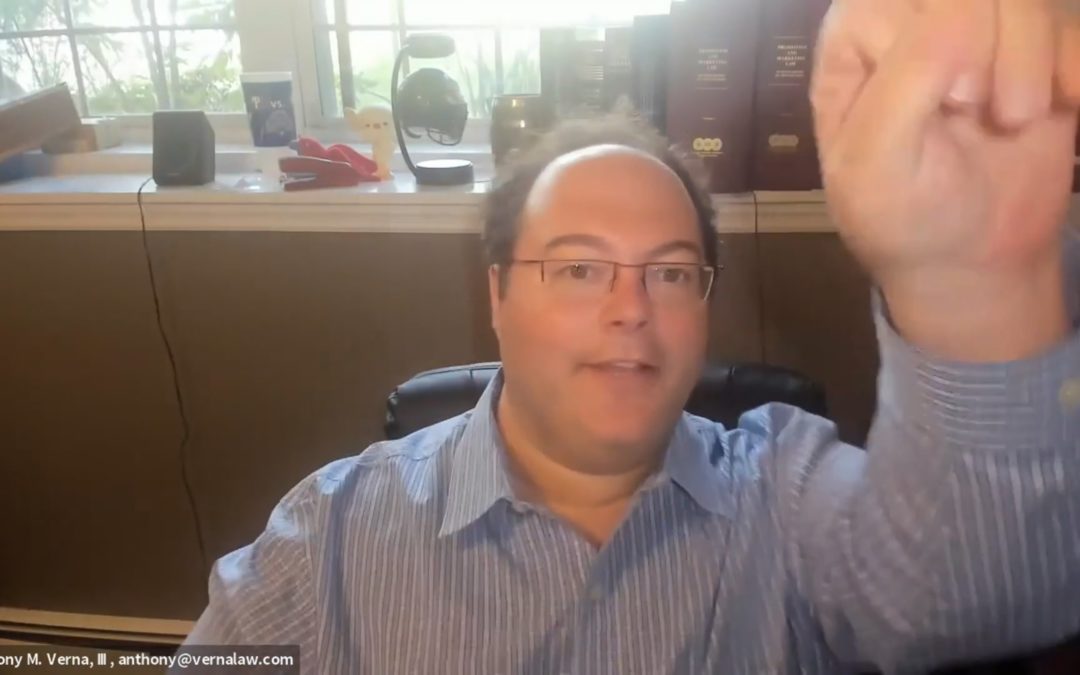Podcast (video): Play in new window | Download
The Telephone Consumer Protection Act of 1991 (TCPA) was passed by the United States Congress in 1991 and signed into law by President George H. W. Bush as Public Law 102-243. It amended the Communications Act of 1934. The TCPA is codified as 47 U.S.C. § 227. The TCPA restricts telephone solicitations (i.e., telemarketing) and the use of automated telephone equipment. The TCPA limits the use of automatic dialing systems, artificial or prerecorded voice messages, SMS text messages, and fax machines. It also specifies several technical requirements for fax machines, autodialers, and voice messaging systems—principally with provisions requiring identification and contact information of the entity using the device to be contained in the message.
Consumer consent is an essential defense under the TCPA and should be a primary focus of any business that communicates with consumers and customers directly via telephony.
You should consult with your legal counsel to ensure that your opt-out process is compliant with applicable law and consistent with industry standards.
Here is a lightly-edited transcript of the video blog:
In the video blogs, we’ve covered all sorts of intellectual property topics.
One topic we haven’t really covered: Advertising law.
It’s a lot of alphabet soup: States, federal regulations.
Let’s talk a little bit about the Telephone Consumer Protection Act. The TCPA – see, alphabet soup – of 1991 has been amended many times since Congress passed it. It’s all about telemarketing.
The TCPA does not qualify if somebody by hand dials your phone. For all of you out there that are doing telemarketing, the TCPA applies if a computer is dialing, which of course 99.9% of telemarketing is done by computers today.
The TCPA also sets hours and it’s the time zone of, of
course, the person receiving the phone call, 8:00 AM to 6:00 PM are absolutely
legal marketing time, not before and not after that. Also, if you’re calling
the cell phone, guess what, you can’t call a cell phone for marketing.
I know we all get, telemarketing calls on our cell phones. That’s also not
allowed under the TCPA.
I recently had a client who was doing telemarketing called some people on the West coast outside of the hours and now is being sued for violations of the Telephone Consumer Protection Act. It’s, a frustrating and long process to deal with litigation when only a couple phone calls are outside of those legal ranges.
But from a compliance standpoint, it’s really not a difficult compliance to follow.
Make sure that your telemarketing company is dialing within the hours. Make sure that none of those calls are cell phones and make sure that, that, that your telemarketing company is following all of these procedures and make sure that if there’s a problem, they’re the ones with the problem under the contract with your telemarketing company.
The TCPA has violations for $500 per phone call that is outside of any of these ranges.
Again, the Do Not Call List is a part of that as well. So set that up properly.
Don’t be a defendant in a TCPA violation lawsuit. Don’t wind up in regulatory issues. Follow these completely.


Good topic. But I still don’t understand why anyone would want to do telemarketing to promote their business when it has such a bad connotation with 99.9% of consumers. No one wants these calls, how it could possibly benefit a company is beyond me.
It is still a highly-responsive method of marketing when done correctly. https://www.callboxinc.com/telemarketing/6-smart-calling-essentials-better-telemarketing-results/ Here is an article on tips to improve telemarketing. When done smartly and within the regulations, many companies (especially if the company is B2B) get results from it.